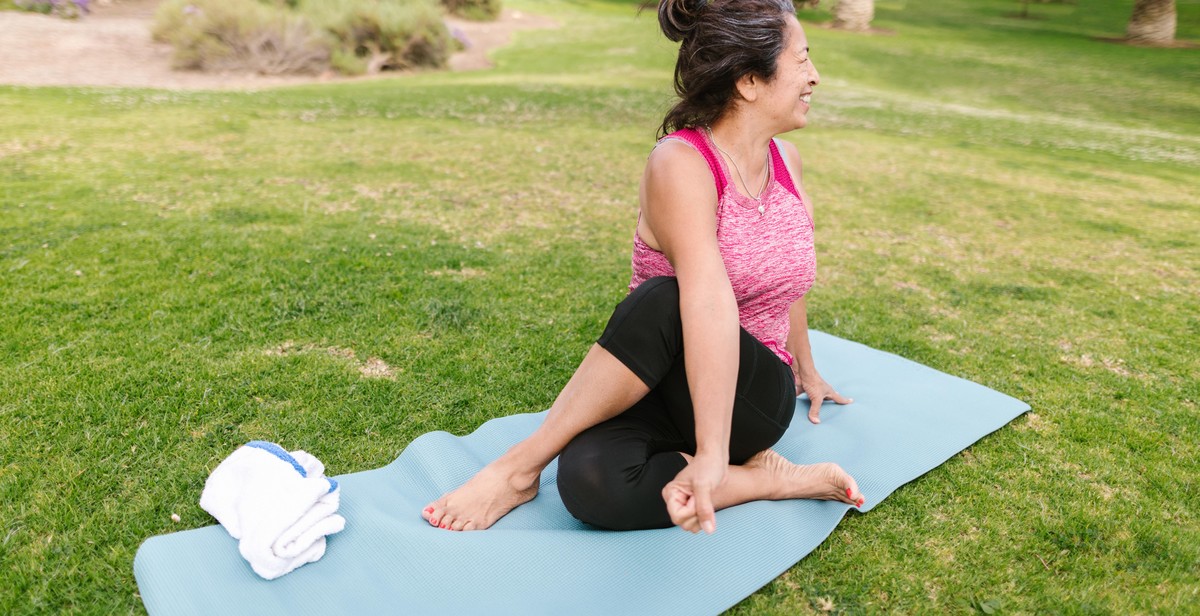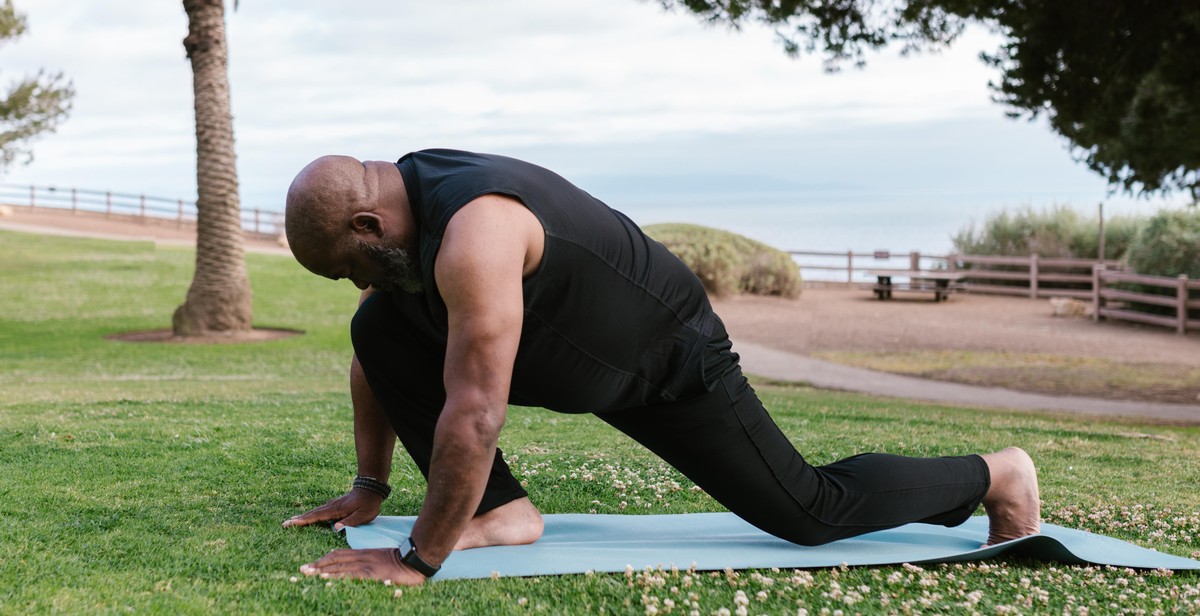The Mental Health Benefits of Outdoor Activities
As a professional article writer and content creator with years of experience, I have come to realize the importance of outdoor activities on mental health. Nature has a way of healing the mind and body, and engaging in outdoor activities is a sure way to improve your mental health.
Studies have shown that spending time in nature can reduce stress, anxiety, and depression. Being outdoors exposes you to natural light, fresh air, and the beauty of nature, all of which have a positive impact on your mental health.
Benefits of Outdoor Activities on Mental Health
- Reduces stress and anxiety
- Boosts mood and self-esteem
- Improves focus and concentration
- Increases creativity and problem-solving skills
- Enhances overall well-being and quality of life
Whether it’s hiking, camping, gardening, or simply taking a walk in the park, outdoor activities can help improve your mental health and well-being. So, make it a point to spend some time outdoors every day, and reap the many benefits that nature has to offer.

The Connection Between Outdoor Activities and Mental Health
As someone who has spent years engaging in outdoor activities, I can attest to the positive impact it has had on my mental health. But don’t just take my word for it – there is a wealth of scientific evidence that supports the connection between spending time in nature and improved mental wellbeing.
The Science Behind It
Studies have shown that spending time in nature can reduce symptoms of anxiety and depression, as well as improve overall mood and self-esteem. This is thought to be due to the fact that being in nature reduces stress levels and stimulates the release of endorphins, the body’s natural feel-good chemicals. Additionally, exposure to sunlight can boost vitamin D levels, which has been linked to improved mental health.
One study published in the Journal of Environmental Psychology found that spending just 20 minutes in nature can significantly reduce cortisol levels, the hormone associated with stress. Another study published in the International Journal of Environmental Health Research found that spending time in green spaces can improve overall life satisfaction and reduce symptoms of anxiety and depression.
The Positive Effects of Nature on Mental Health
There are many ways to engage in outdoor activities and reap the mental health benefits of nature. Some popular options include hiking, camping, gardening, and simply spending time in a park or other green space. These activities allow us to unplug from technology and connect with the natural world, which can be incredibly grounding and calming.
Additionally, outdoor activities can provide a sense of accomplishment and mastery, which can boost self-esteem and confidence. For example, completing a challenging hike or successfully growing a garden can give us a sense of pride and accomplishment that carries over into other areas of our lives.
Overall, the connection between outdoor activities and mental health is clear. Whether you are dealing with symptoms of anxiety or depression, or simply looking for a way to improve your overall wellbeing, spending time in nature can be a powerful tool. So why not lace up your hiking boots or grab a trowel and head outside? Your mental health will thank you.

Types of Outdoor Activities for Mental Health Benefits
Outdoor activities are a great way to improve mental health and well-being. They provide an opportunity to disconnect from the stresses of daily life and connect with nature. Here are some of the most popular outdoor activities that have been proven to have mental health benefits.
Hiking and Walking
Hiking and walking are excellent forms of exercise that can help reduce stress, anxiety, and depression. Walking in nature has been shown to enhance mood, boost self-esteem, and improve cognitive function. It can also lead to better sleep and increased energy levels. Whether it’s a leisurely stroll or a challenging hike, being outdoors and moving your body can do wonders for your mental health.
Gardening
Gardening is a therapeutic activity that can help reduce symptoms of anxiety and depression. It has been shown to improve mood, increase feelings of calmness, and reduce stress levels. Gardening also provides a sense of accomplishment and purpose, as well as a connection to nature. Whether it’s planting flowers or growing vegetables, spending time in the garden can be a great way to improve mental health.
Fishing and Hunting
Fishing and hunting are outdoor activities that can have a positive impact on mental health. They provide an opportunity to disconnect from technology and connect with nature. Being in a peaceful, natural setting can help reduce stress and anxiety, and the focus required for fishing or hunting can give a sense of purpose and accomplishment. These activities also provide an opportunity for social interaction and can improve relationships with friends and family.
Water Activities
Water activities such as swimming, kayaking, and paddleboarding are great for mental health. The sound of water has a calming effect on the mind, and the physical activity can improve mood and reduce stress. Being in or near water can also provide a sense of peace and relaxation. These activities can be done alone or with others, making them a great way to connect with nature and improve social connections.
Team Sports
Team sports such as soccer, basketball, and volleyball can have a positive impact on mental health. They provide an opportunity to connect with others, build relationships, and improve social skills. Team sports also provide a sense of purpose and accomplishment, as well as a way to release stress and improve mood. Whether it’s a casual game with friends or a competitive league, team sports can be a great way to improve mental health while having fun.
| Activity | Mental Health Benefits |
|---|---|
| Hiking and Walking | Reduces stress, anxiety, and depression; enhances mood, boosts self-esteem, and improves cognitive function |
| Gardening | Reduces symptoms of anxiety and depression; improves mood, increases feelings of calmness, and reduces stress levels |
| Fishing and Hunting | Reduces stress and anxiety; provides a sense of purpose and accomplishment; improves social connections |
| Water Activities | Improves mood, reduces stress, and provides a sense of peace and relaxation |
| Team Sports | Improves social connections, releases stress, provides a sense of purpose and accomplishment |

Tips for Maximizing Mental Health Benefits from Outdoor Activities
Spending time outdoors can significantly improve mental health and wellbeing. Here are some tips for maximizing the benefits of outdoor activities:
Set Realistic Goals
Setting realistic goals for outdoor activities can help you feel accomplished and improve your mental wellbeing. Start with small goals and gradually increase the difficulty level as you progress. For example, if you are new to hiking, start with a short and easy trail and gradually increase the distance and difficulty level.
Take Time to Disconnect from Technology
Technology can be a major source of stress and anxiety. Taking time to disconnect from technology during outdoor activities can help you relax and improve your mental health. Leave your phone at home or turn it off during your outdoor adventure. Take in your surroundings and appreciate the beauty of nature.
Make It a Social Activity
Outdoor activities can be a great way to connect with others and improve your mental wellbeing. Invite friends or family members to join you on your outdoor adventure. Socializing can help reduce stress and anxiety and improve overall mental health.
Practice Mindfulness
Mindfulness is the practice of being present and fully engaged in the current moment. Outdoor activities provide a great opportunity to practice mindfulness. Take in the sights, sounds, and smells of your surroundings. Focus on your breathing and the sensation of your body moving. Practicing mindfulness can help reduce stress and improve overall mental wellbeing.
Conclusion
By setting realistic goals, disconnecting from technology, making outdoor activities a social activity, and practicing mindfulness, you can maximize the mental health benefits of spending time outdoors. Incorporate these tips into your outdoor adventures to improve your mental wellbeing and overall quality of life.

Conclusion
After researching and writing about the mental health benefits of outdoor activities, I can confidently say that spending time in nature is one of the best things you can do for your mental well-being. Not only does it provide a break from technology and the stresses of daily life, but it also offers a range of physical and mental benefits that can improve your overall quality of life.
Key Takeaways
- Outdoor activities can reduce stress and anxiety
- Spending time in nature can improve mood and self-esteem
- Outdoor activities can increase creativity and cognitive function
- Being active outdoors can improve physical health and fitness
- Outdoor activities can provide a sense of connection and community
Whether you prefer hiking, biking, gardening, or simply sitting in a park, there are countless ways to get outside and reap the benefits of nature. And as someone who has personally experienced the positive effects of outdoor activities on my own mental health, I highly recommend giving it a try.
| Activity | Benefits |
|---|---|
| Hiking | Reduces stress and improves mood |
| Biking | Increases cardiovascular health and improves mental clarity |
| Gardening | Reduces symptoms of depression and anxiety |
| Sitting in a park | Provides a sense of calm and relaxation |
So next time you’re feeling overwhelmed or in need of a mental boost, consider stepping outside and taking in the beauty of nature. Your mind (and body) will thank you.
